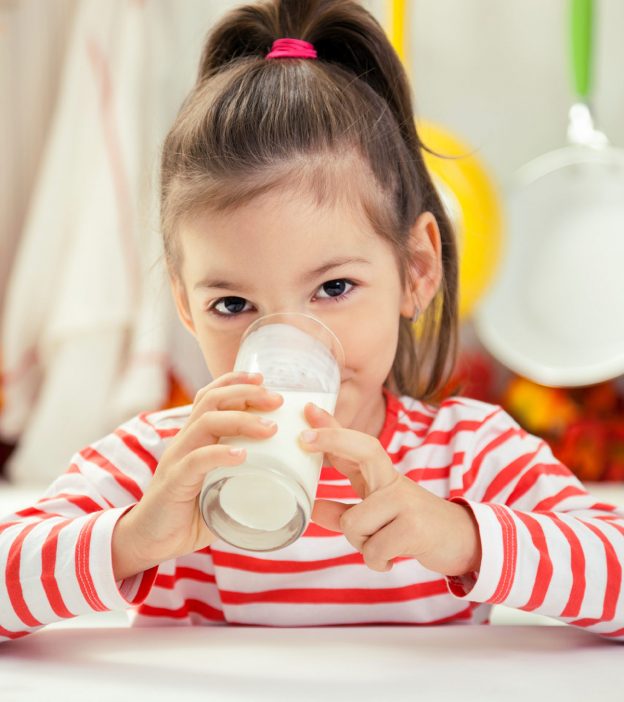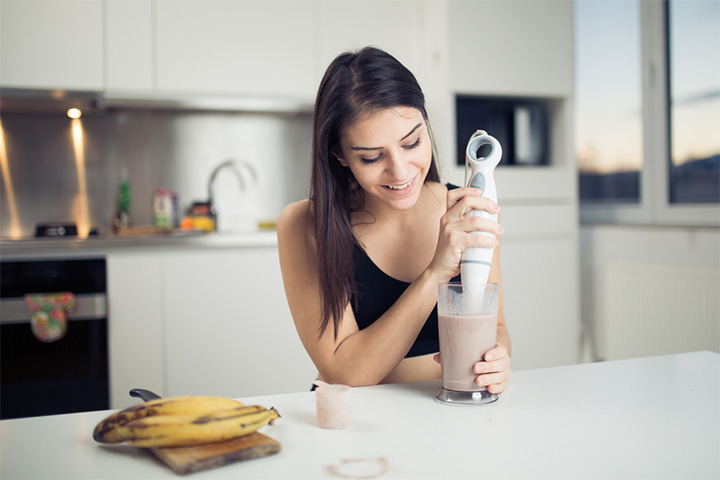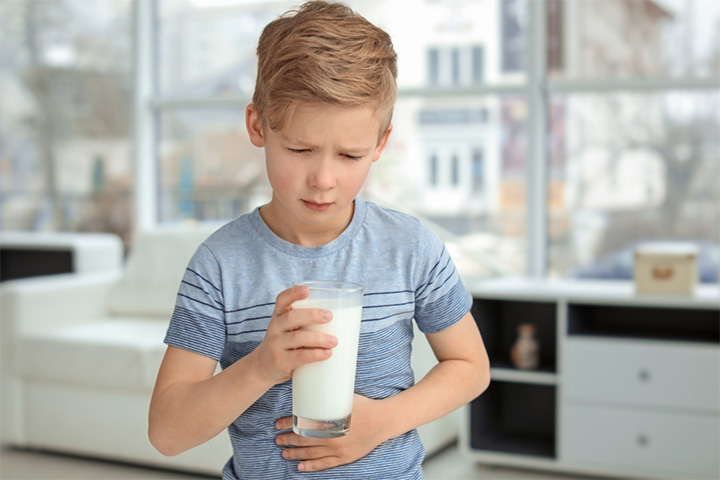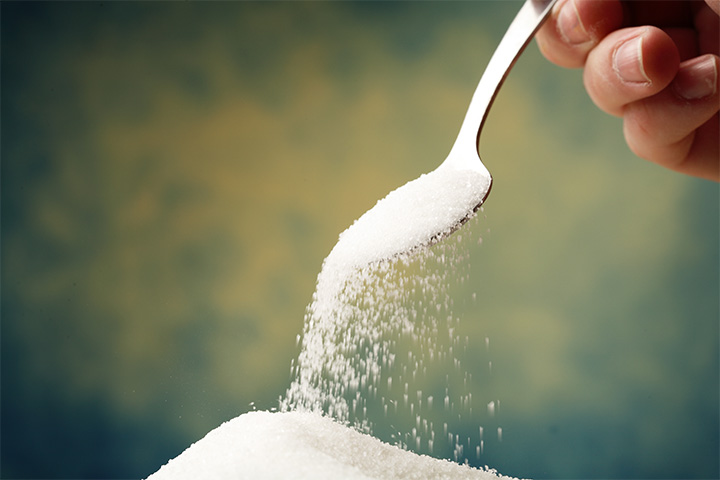Pediasure Enteral Feeding for a Child of 8 Yo

Image: iStock
A child's healthy, all-round development depends largely on their diet. So, besides food, pediatricians may suggest adding the nutritional supplement, PediaSure for kids. Parents are usually concerned about providing the best nutritious food for their children. In addition, they worry about developmental delays, poor growth, and other health problems usually caused by nutrient deficiencies. Therefore, they may opt for supplementing their child's diet with commercially available products. Continue reading this post where we explain how effective PediaSure is in addressing growing children's nutritional demands. This is not a promotional post for PediaSure or its sister brands. It is for informational purposes only and not a replacement for a doctor's advice.
Is PediaSure Good For Kids?
Most PediaSure products claim to be rich in high-quality protein and essential vitamins and minerals. These nutrients are necessary to support the growth and development of children. Besides, all of them are gluten-free and hence relatively easy on the gut.
A research study showed that regular use of oral nutritional supplements (ONS) could promote and sustain adequate intake of nutrients in children who have the risk of malrnutrition (1).
Thus, the product can be considered good when given under medical supervision. Consult your doctor, as he is the person who will guide you in best possible ways.
When Can Children Start Having PediaSure?
Depending on the variant, the manufacturer recommends PediaSure for children from two years to 13 years (2). If your child is younger than two years, then the brand advises a pediatric consultation before use. The use of PediaSure for babies up to one year of age is not recommended (3).
How To Give PediaSure To Your Child?
The method of preparing and serving PediaSure depends on its variant. For instance,
- PediaSure Grow and Gain Shakes are ready-to-drink shakes that do not require preparation.
- It is a powder that needs to be mixed in water to prepare the drink.
- The company also suggests parents try recipes that can have Grow & Gain shakes or powder mix as an ingredient. However, do check the other ingredients in a recipe to ensure your child's safety.
Image: Shutterstock
PediaSure And Its Product Types
PediaSure nutritional supplements are available in a range of variants depending on the nutritional requirement of the child and their age. Here are the three common PediaSure products available over the counter.
- PediaSure Grow and Gain is a product formulated for children who are lacking appropriate growth (2). It comes in variants, such as PediaSure Grow and Gain, PediaSure Grow and Gain with Fiber, PediaSure Grow and Gain Organic, and PediaSure Grow and Gain Shake Mix (4).
- PediaSure Side Kicks is designed to fill the nutritional gaps in a child's diet and helps kids catch up on their growth (5). According to the maker, this product provides extra protein and fewer calories when compared to PediaSure Grow and Gain. PediaSure Side Kicks is suitable for fussy eaters.
- PediaSure 1.5 Cal has high caloric density to meet the high energy demands of children at risk of malnutrition (6). It has one variant, PediaSure 1.5 Cal with Fiber.
Most PediaSure products are available in multiple flavors. There are some other product types that are specially designed for tube feeding, like PediaSure Enteral Formula 1.0 Cal.
How Much PediaSure Can Children Drink Per Day?
According to PediaSure, in general, there is no safe limit of intake. The brand recommends consulting a pediatrician to determine the amount of supplement suitable for your child. It is even more important to consult a pediatrician if the child is already eating adequate food and consuming other beverages.
The recommended intake will also depend on the PediaSure variant recommended by the pediatrician. Therefore, the daily serving for each child might vary.
Claimed Health Benefits of PediaSure For Children
Here are some of the benefits said to accrue on the consumption of PediaSure.
- Supports growth and development: PediaSure contains high-quality protein, calcium, and vitamin-D3. The regular consumption of this drink with a well-balanced, healthy diet could help in gain weight and height within 24 weeks. PediaSure claims that this benefit is clinically proven in children between the ages of three-four years.
Image: iStock
- Immune support: PediaSure is said to contain antioxidant compounds such as vitamins C and E, and selenium. A study showed that regular use of oral nutritional supplements, like PediaSure, in nutritionally at-risk picky eating children with upper respiratory tract infections, helps maintain their weight during acute infections (7).
Apart from the above nutritional benefits, some other general benefits of PediaSure are:
- Gluten-free: Some nutritional drinks contain gluten that is not suitable for children with gluten sensitivity, intolerance, or allergy. PediaSure might be a choice since all its variants are gluten-free.
- Suitable for lactose intolerant children: Products are labeled as "suitable for lactose intolerance" when they contain lactose at a level that does not seem to affect anyone with lactose intolerance. PediaSure claims to contain less than four grams lactose per liter as fed, or less than 0.5 grams lactose per serving as fed. However, the product needs to be avoided in children with cow milk allergy and galactosemia.
Image: Shutterstock
The product also claims to be free of artificial growth hormones and is Kosher and Halal-certified.
Probable Side Effects Of Nutritional Supplements For Children
Image: iStock
There might be some side effects of consuming nutritional supplements, such as PediaSure.
- Sugar content: Supplements contain total natural sugar in the form of plain sugar, corn syrup, and corn maltodextrin that all have a high glycemic index (GI). Thus, in the case of a healthy child, nutritional supplements might contribute to weight gain and issues such as dental caries (8).
- Gastrointestinal issues: Components, such as fiber and soy protein isolate, when consumed in high amounts, could lead to gastrointestinal issues such as constipation, bloating, and nausea. It might probably happen in children who consume fiber from several different food sources (9).
- Might replace normal food: A child may feel full after consuming the beverage and may reject their next meal. Also, in the long term, there might be a risk of the child preferring high sugar foods. The probability of this incidence depends on several factors, including excess consumption without consulting a pediatrician.
Image: iStock
1. How to mix PediaSure Grow & Gain for kids?
To prepare one glass of PediaSure Grow & Gain, mix five scoops of powder into 3/4th cup of water (10). Stir well to avoid any lumps. Give the drink as prescribed by a pediatrician.
2. Is PediaSure a meal replacement?
No, PediaSure is not a meal replacement. It is a dietary supplement to ensure that children reach optimal growth without nutritional deficiencies. It is recommended to consult a pediatrician before administering Pediasure to children.
3. Is PediaSure good for brain development?
PediaSure claims to contain several vitamins and minerals that boost brain development in children. The brand also claims to contain essential fatty acids that support optimal brain development.
Doctors and parents use PediaSure for kids to ensure they get sufficient nutrients and gain calories as required. If your child follows a balanced diet, PediaSure may not be recommended. Further, it is advisable to use PediaSure only with the doctor's consent, especially for children under two. Also, refrain from giving it more than the recommended number of times per day since it may replace meals. If you notice any gastrointestinal troubles in your child after consuming PediaSure, consult your child's healthcare provider.
References:
MomJunction's articles are written after analyzing the research works of expert authors and institutions. Our references consist of resources established by authorities in their respective fields. You can learn more about the authenticity of the information we present in our editorial policy.
Was this article helpful?
The following two tabs change content below.
- Reviewer
- Author

Swati Patwal is a clinical nutritionist, a Certified Diabetes Educator (CDE) and a toddler mom with over eight years of experience in diverse fields of nutrition. She started her career as a CSR project coordinator for a healthy eating and active lifestyle project catering to school children. Then she worked as a nutrition faculty and clinical nutrition coach in different... more

Dr. Umera Zakiahmed Saiyed is a homoeopathic consultant and runs her own clinic Noor. She pursued her BHMS from Yerela Medical College in Kharghar, Mumbai and worked as an assistant doctor under a gynaecologist in Surat, Gujarat. With more than 5 years of experience in gyneacpcods, assisting many labor and caesarean deliveries, she holds expertise in cases related to infertility,... more
Source: https://www.momjunction.com/articles/is-pediasure-good-for-kids_00390663/





Belum ada Komentar untuk "Pediasure Enteral Feeding for a Child of 8 Yo"
Posting Komentar